The mission of Google Quantum Al is to make best-in-class quantum computing tools available to the world, enabling humankind to solve problems that would otherwise be impossible. In this interview, Dr. Markus Hoffmann talks about potential quantum applications, his idea of a quantum computer as a co-processor, and the vision of building an error-corrected quantum computer in the next decade.
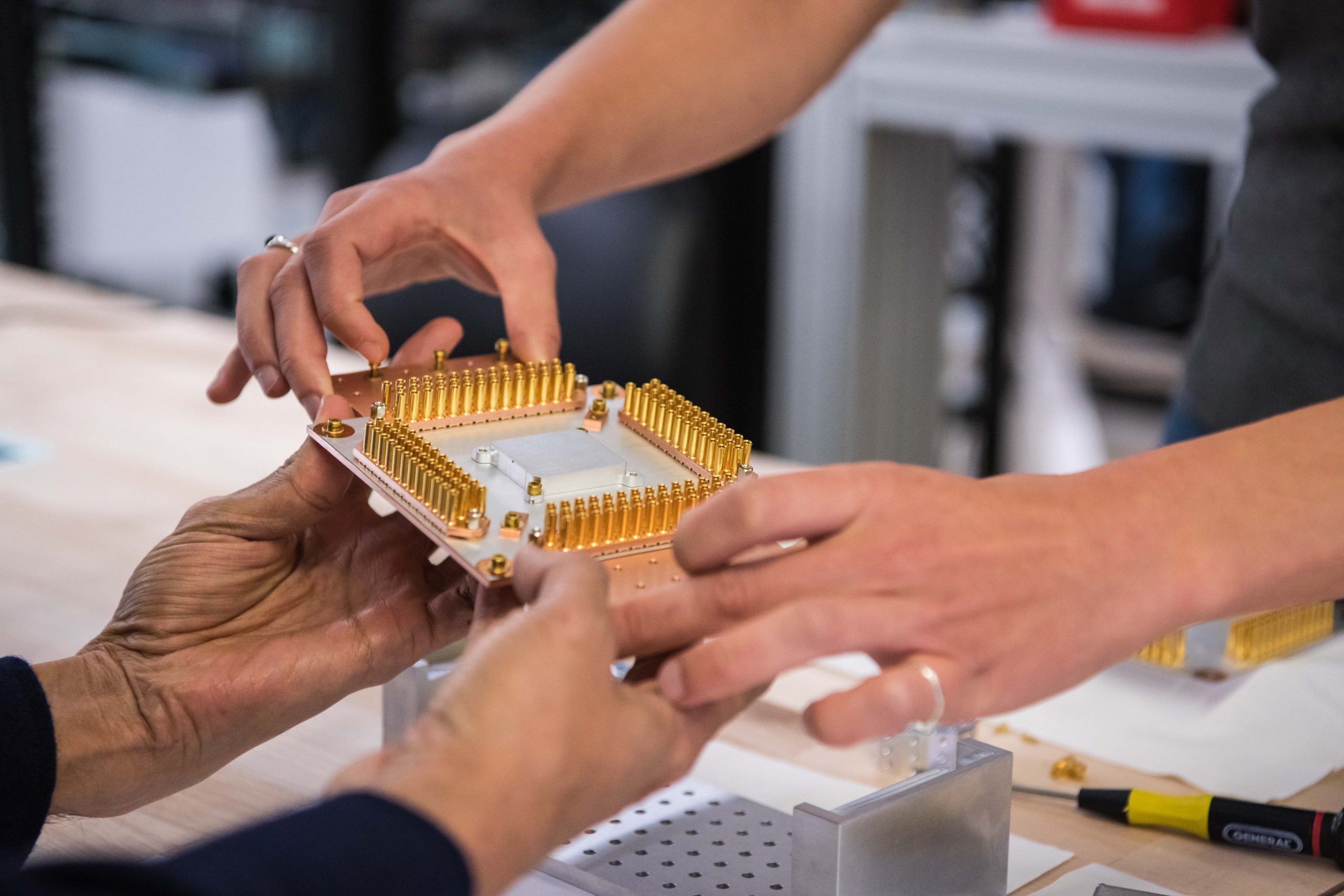
You are an expert in quantum computing at Google and responsible for partnerships for quantum computing. How can you imagine your work? What is your goal? What are you doing exactly?
Let’s start with our group. Google Quantum AI is part of Goog- le Research. Our mission is to make best-in-class quantum com- puting tools available to the world, enabling humankind to solve problems that would otherwise be impossible. Based on this mis- sion, our goals for the next decade are to build an error-corrected quantum computer and finding valuable applications for quantum. My role is about managing relationships with all our partners across the Quantum Ecosystem. This includes our academic col- laborators, start-ups and our first industrial research partners. It’s very motivating to see the quantum computing community grow at such a rapid pace over the last couple of years.
While our hardware group is based in the US in Santa Barbara and our theory group is led out of Los Angeles, we also have several team members in the European Union, with for example our European Quantum Algorithms and Applications Lead and myself being based in our Google office in Munich.
How do you think quantum computing will change our lives and work? What is your vision?
On your question of how quantum computing will change our lives, a first starting point would be to look into which problems are hard to solve for classical computers today. It’s important to point out that a quantum computer will not be able to speed up all of these hard problems, for many problems a classical computer will actually be faster in the future as well. You can imagine a quantum computer as a co-processor which is able to solve a certain catego- ry of problems very well. As mentioned above one of these catego- ries will definitely be native quantum systems, like we see them in material science, chemistry and pharma. Applications discussed in the quantum community are room-temperature superconductors, materials for better electric car batteries up to more efficient cat- alysts in industrial applications or more efficient drug discovery. A field which has seen much interest from quantum computing researchers over many years is quantum optimization. However, our group just showed in a recent paper that quantum algorithms with quadratic speedups, like the widely known Grover’s algo- rithm for unstructured search will even in the error-correction era most likely not be able to outperform classical solvers. This shows the need for more fundamental research on quantum al- gorithms as every industry is facing optimization problems. The paper showed that new quantum algorithms with minimum quadratic speedups are required, to be able to solve optimization problems faster on a quantum computer and so make them valu- able for industrial applications.
Further areas of research are linear algebra and differential equa- tions, where the quantum speedup to solve certain problems could even be exponential and allow completely new applications.
The last big field of research to mention here is quantum machine learning. This field is compared to the other two quite young, but looks quite promising. Here you could for example imagine train- ing more robust machine learning models on more noisy datasets with fewer samples.
The question of when this will actually happen is especially hard to predict. With our beyond classical experiment in October 2019, we have shown that a quantum computer is able to outperform the fastest supercomputer on a very specific task; the quantum device performed the aforementioned task in 200 seconds, while the world’s top supercomputers would need thousands of years. As simulation algorithms improve over time, it’s likely that the classical runtime can be improved, but the direction is clear as adding only one further qubit already doubles the problem size. Based on this fact, it’s obvious that improvements on classical al- gorithms will not be able to catch up, as the number of qubits in- creases. This nicely visualizes the power of exponential scaling. Right now quantum computing is in the Noisy Intermedi- ate-Scale Quantum (NISQ) era. This means we have several dozens of physical qubits, which produce a certain amount of er- rors for every calculation. The Nobel Prize winner Richard Feyn- man once said: “Nature isn‘t classical, dammit, and if you want to make a simulation of nature, you‘d better make it quantum mechanical.” Given material science and chemistry problems are native quantum systems our research is currently looking into solving beyond classical problems during the NISQ era. We are quite optimistic about finding beyond classical problems in mate- rial science or chemistry during the NISQ era, althouogh a lot of fundamental research is still required.
As mentioned our long term vision is to build over the next dec- ade an error-corrected quantum computer. This is a device with so-called logical qubits – each such qubit requires approximately 1000 noisy physical qubits to make, but runs with far-suppressed error levels. To achieve this we plan to leverage the surface code. In the summer of 2020, we presented our detailed roadmap for this journey to error correction, which will encounter large chal- lenges on the hardware and theory side.
What would you recommend to a computer science stu- dent or a computer scientist from a company who is interested in quantum computing? How does he or she best get started with this topic?
First of all I think students are looking at a very promising fu- ture. To me it feels like quantum computing is heading towards a similar situation as we are in with AI today, where we have excellent hardware and software available, but industry cannot find enough highly skilled talent on the market to create maxi- mum value out of these resources. Looking at the size of today‘s quantum computing community and assuming the availability of error-corrected quantum computers in the next decade, I think the industry will face problems to find enough talent to make good use of future quantum computers.
One misconception on quantum computing I often see is that people think of quantum computing as just another compute unit which is programmed via already known languages like Python, with all the quantum logic abstracted into libraries. This is defi- nitely not the case, so my recommendation to students who would like to get into quantum computing, is to expand their knowledge on quantum information science and how to develop and improve quantum algorithms. The quantum computing stack consists of many layers. This requires researchers with expertise in, for example, high-level programming, FPGA programming, elec- tronics design, materials science, applied mathematics, signals processing, chemistry and physics. It’s very positive to see that more and more Master programs are starting, like the Master in Quantum Science & Technology by Munich Center for Quantum Science and Technology, LMU and TUM. The Google Quantum Software stack is completely open source under Apache 2.0, so students interested in the field can get start- ed immediately without having to think about licensing. The soft- ware stack includes Cirq our quantum programming language, OpenFermion a package for chemistry simulation and Tensor- Flow Quantum, which is a library for hybrid quantum-classical machine learning. For sure we also see the demand for quantum compute resources especially in education and academia. For that reason we open sourced our high-performance quantum simula- tor qsim. This allows quantum simulations on classical compute infrastructure. So students can run high performance simulations on their laptops to get started in the field, while senior academics can also prepare large scale experiments using large machines on premise or in the cloud.
Germany is characterized by a very well developed funding landscape. How can we best prepare Germany for the age of quantum computing?
First, the German government should continue to increase sup- port for fundamental research that will create the foundation for broad industrial value in the future. For example, take the above paper on quantum optimization – we need basic research now to discover algorithms that can better scale quantum optimiza- tion for future industrial applications. This is true for many of the building blocks of quantum computers (both hardware and software) and is reflected in the fact that the Google Quantum AI group is part of Google Research.
Second, we need to consider how to best support the growing quantum computing ecosystem, which includes quantum hard- ware and the related supply chain, hardware and software start- ups and quantum applications in industry. Such support could come through funding, as well as opportunities for public-private partnerships across the quantum computing system. There are several quantum hardware efforts across the European Union based on different technologies. Two to mention are the EU funded OpenSuperQ project using superconducting qubits or IQM a start-up out of Finland which is also building their hardware based on superconducting qubits. Furthermore there is AQT out of Innsbruck building quantum computers based on ion-traps or Pasqal out of Paris using cold atoms. One thing AQT and Pas- qal have in common is that both are using the same open source quantum computing framework Cirq, as Google does. So scien- tists writing algorithms in Cirq can easily leverage all three plat- forms and support for further platforms is upcoming.
Beyond supporting hardware start-ups I think one key aspect will be to support strong software and algorithm start-ups to be able to unlock value creation in industry, especially with the knowledge in mind that industry will have a hard time to find sufficient talent for a certain amount of time. Here quantum start-ups might play a key role in bridging this gap. For industry the general recommen- dation is to create a quantum strategy, which covers in which ar- eas and by when quantum computing will likely become relevant for them. Especially for those with potential NISQ applications, incubation teams with a strong quantum science background will be key to starting research on their specific problems. We also provide ReCirq which is a repository of NISQ experiments.
How can science and business cooperate with Google today?
At the current stage our group‘s focus is on accelerating quan- tum science. We are broadly collaborating with academic groups across the full quantum computing stack and have several col- laborations across the European Union. These academic collab- orations include for example funded research projects, a limited number of groups with early access to our quantum computer, an offering for visiting scientists and visiting faculties or a large internships program.
Regarding cooperations with industry one has to know we are not widely commercializing our quantum computing service and in- stead focusing on a limited number of industrial research partner- ships. All our current industry research partnerships are right now with European companies, which include VW, Daimler, Covestro, Boehringer Ingelheim and further being announced in early 2021. During these research partnerships our teams collaborate on fun- damental research questions which will be the building blocks for future industrial applications. The results of these collaborations are published as open research, as we for example did with Daimler last summer in Science with our joint Hartree-Fock experiment.


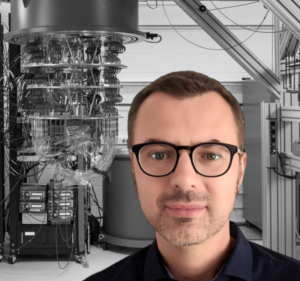
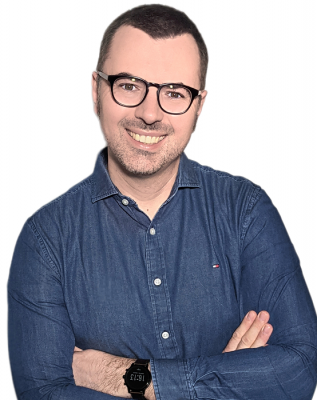

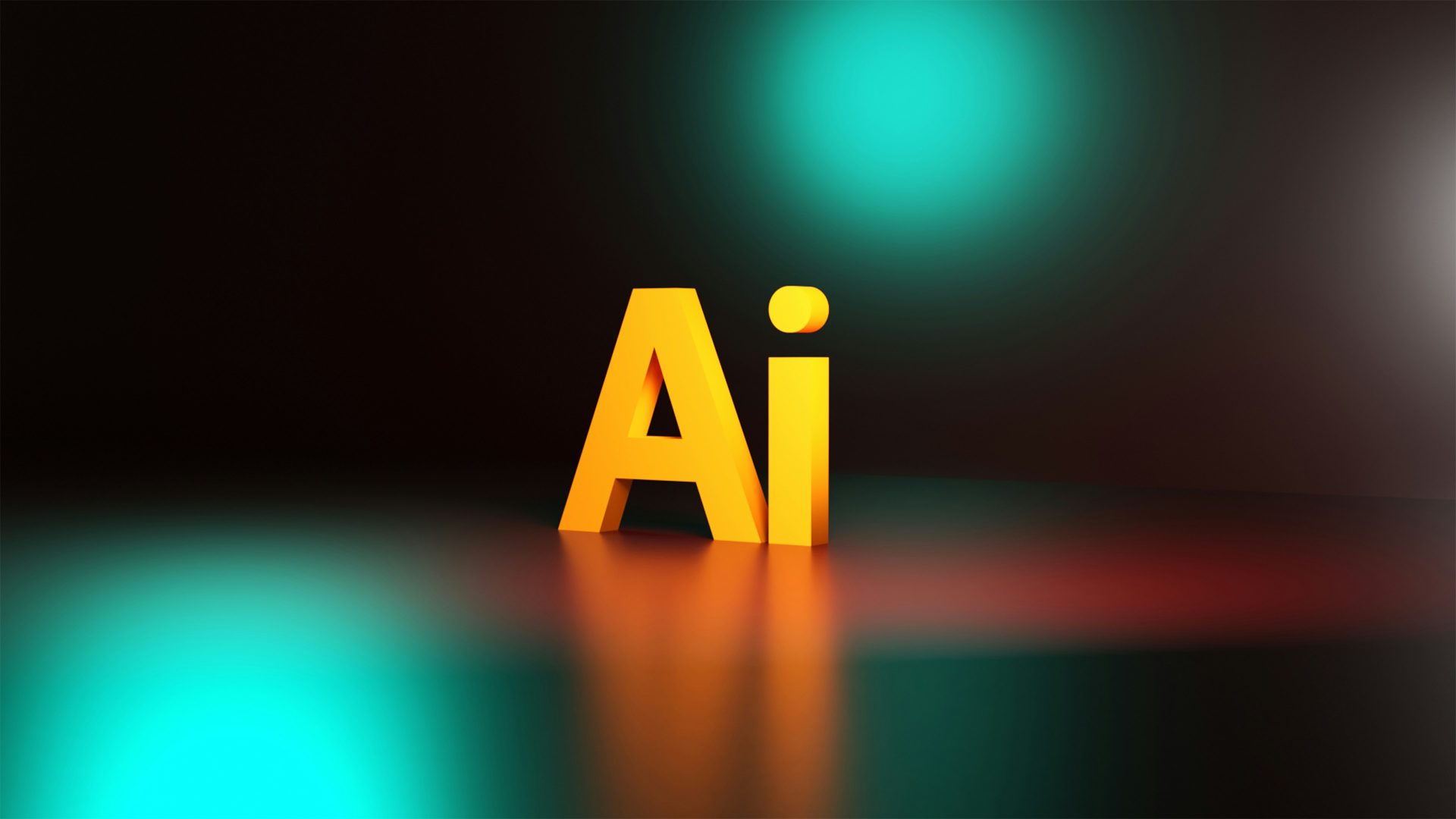



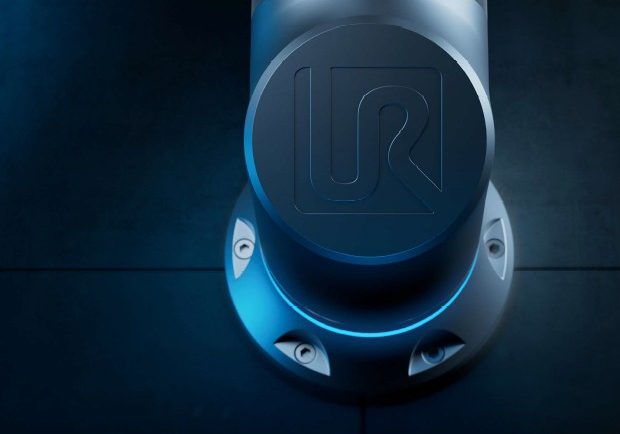

Um einen Kommentar zu hinterlassen müssen sie Autor sein, oder mit Ihrem LinkedIn Account eingeloggt sein.